Beautiful Minds
I’m thankful for unique learners!
 My SPD/SLD/ADD (Sensory Processing Disorder, Specific Learning Disability-Dyslexia, Visual and Auditory Processing Disorders, Attention Deficit Disorder, etc) sweetie, aka Renaissance Girl, has raised the bar on my homeschooling skills more times than I can count. Her beautiful mind sees the world through a unique lens similar to those of historical icons such as Thomas Edison, Leonardo Da Vinci, Benjamin Franklin, and Albert Einstein. While academics have been a huge challenge for
My SPD/SLD/ADD (Sensory Processing Disorder, Specific Learning Disability-Dyslexia, Visual and Auditory Processing Disorders, Attention Deficit Disorder, etc) sweetie, aka Renaissance Girl, has raised the bar on my homeschooling skills more times than I can count. Her beautiful mind sees the world through a unique lens similar to those of historical icons such as Thomas Edison, Leonardo Da Vinci, Benjamin Franklin, and Albert Einstein. While academics have been a huge challenge for her, the artistic and musical gifts she’s been given are incredible, and her gentle, sensitive soul is a rare and precious treasure. Many years of therapy have yielded the ability to read, and she’s like a butterfly newly emerged from her cocoon. Jane Eyre, Little Women, Anne of Green Gables, all have sent her beautiful mind soaring to different times and places, and all have become intimate, lifelong friends with my sweet girl. I am so blessed to be entrusted with such a unique child to guide and grow and love!
her, the artistic and musical gifts she’s been given are incredible, and her gentle, sensitive soul is a rare and precious treasure. Many years of therapy have yielded the ability to read, and she’s like a butterfly newly emerged from her cocoon. Jane Eyre, Little Women, Anne of Green Gables, all have sent her beautiful mind soaring to different times and places, and all have become intimate, lifelong friends with my sweet girl. I am so blessed to be entrusted with such a unique child to guide and grow and love!
One of my girl’s drawings!

Einstein recognized his unique lens and often commented about it and about how organized education systems didn’t accommodate individuality and creativity. Here is a look into this ‘unique learner’s’ mind in his own words:
Education is what remains after one has forgotten what one has learned in school. Albert Einstein
A man should look for what is, and not for what he thinks should be.
Albert Einstein
It is a miracle that curiosity survives formal education.
Albert Einstein
A person who never made a mistake never tried anything new.
Albert Einstein
A question that sometimes drives me hazy: am I or are the others crazy?
Albert Einstein
The only thing that interferes with my learning is my education.
Albert Einstein
All that is valuable in human society depends upon the opportunity for development accorded the individual.
Albert Einstein
Any intelligent fool can make things bigger and more complex… It takes a touch of genius – and a lot of courage to move in the opposite direction.
Albert Einstein

Any man who can drive safely while kissing a pretty girl is simply not giving the kiss the attention it deserves. (One of my favorite Einstein quotes, lol!)
Albert Einstein
Any man who reads too much and uses his own brain too little falls into lazy habits of thinking.
Albert Einstein
Do not worry about your difficulties in Mathematics. I can assure you mine are still greater.
Albert Einstein
Everything should be as simple as it is, but not simpler.
Albert Einstein
Everything that can be counted does not necessarily count; everything that counts cannot necessarily be counted.
Albert Einstein
Few are those who see with their own eyes and feel with their own hearts.
Albert Einstein
God always takes the simplest way.
Albert Einstein
He who can no longer pause to wonder and stand rapt in awe, is as good as dead; his eyes are closed.
Albert Einstein
He who joyfully marches to music in rank and file has already earned my contempt. He has been given a large brain by mistake, since for him the spinal cord would suffice.
Albert Einstein
I am enough of an artist to draw freely upon my imagination.
Albert Einstein
I have no special talent. I am only passionately curious.
Albert Einstein
I think and think for months and years. Ninety-nine times, the conclusion is false. The hundredth time I am right.
Albert Einstein
I used to go away for weeks in a state of confusion.
Albert Einstein
I want to know all Gods thoughts; all the rest are just details.
Albert Einstein
If people are good only because they fear punishment, and hope for reward, then we are a sorry lot indeed.
Albert Einstein
If we knew what it was we were doing, it would not be called research, would it?
Albert Einstein
If you are out to describe the truth, leave elegance to the tailor.
Albert Einstein
If you can’t explain it simply, you don’t understand it well enough.
Albert Einstein
Imagination is everything. It is the preview of life’s coming attractions.
Albert Einstein
Imagination is more important than knowledge.
Albert Einstein
In matters of truth and justice, there is no difference between large and small problems, for issues concerning the treatment of people are all the same.
Albert Einstein
Information is not knowledge.
Albert Einstein
Intellectuals solve problems, geniuses prevent them.
Albert Einstein
It is the supreme art of the teacher to awaken joy in creative expression and knowledge.
Albert Einstein

It’s not that I’m so smart, it’s just that I stay with problems longer.
Albert Einstein
Once we accept our limits, we go beyond them.
Albert Einstein
Only a life lived for others is a life worthwhile.
Albert Einstein
Only two things are infinite, the universe and human stupidity, and I’m not sure about the former.
Albert Einstein
Perfection of means and confusion of ends seem to characterize our age.
Albert Einstein
Pure mathematics is, in its way, the poetry of logical ideas.
Albert Einstein
Science without religion is lame, religion without science is blind.
Albert Einstein
Strive not to be a success, but rather to be of value.
Albert Einstein
The gift of fantasy has meant more to me than my talent for absorbing positive knowledge.
Albert Einstein
The high destiny of the individual is to serve rather than to rule.
Albert Einstein
The important thing is not to stop questioning. Curiosity has its own reason for existing.
Albert Einstein
The most beautiful thing we can experience is the mysterious. It is the source of all true art and science.
Albert Einstein
The only real valuable thing is intuition.
Albert Einstein
The only source of knowledge is experience.
Albert Einstein
The process of scientific discovery is, in effect, a continual flight from wonder.
Albert Einstein

The pursuit of truth and beauty is a sphere of activity in which we are permitted to remain children all our lives.
Albert Einstein
The true sign of intelligence is not knowledge but imagination.
Albert Einstein
The value of a man should be seen in what he gives and not in what he is able to receive.
Albert Einstein
The whole of science is nothing more than a refinement of everyday thinking.
Albert Einstein
The world is a dangerous place to live; not because of the people who are evil, but because of the people who don’t do anything about it.
Albert Einstein
There are two ways to live: you can live as if nothing is a miracle; you can live as if everything is a miracle.
Albert Einstein
There is no logical way to the discovery of these elemental laws. There is only the way of intuition, which is helped by a feeling for the order lying behind the appearance.
Albert Einstein
To raise new questions, new possibilities, to regard old problems from a new angle, requires creative imagination and marks real advance in science.
Albert Einstein
Try not to become a man of success, but rather try to become a man of value.
Albert Einstein
We cannot despair of humanity, since we ourselves are human beings.
Albert Einstein
We cannot solve our problems with the same thinking we used when we created them.
Albert Einstein
We shall require a substantially new manner of thinking if mankind is to survive.
Albert Einstein
We should take care not to make the intellect our god; it has, of course, powerful muscles, but no personality.
Albert Einstein
Weakness of attitude becomes weakness of character.
Albert Einstein
When I examine myself and my methods of thought, I come to the conclusion that the gift of fantasy has meant more to me than any talent for abstract, positive thinking.
Albert Einstein
When the solution is simple, God is answering.
Albert Einstein
Joy in looking and comprehending is nature’s most beautiful gift.
Albert Einstein
Learn from yesterday, live for today, hope for tomorrow. The important thing is not to stop questioning.
Albert Einstein
Logic will get you from A to B. Imagination will take you everywhere.
Albert Einstein
Look deep into nature, and then you will understand everything better.
Albert Einstein
Love is a better teacher than duty.
Albert Einstein
Most people say that is it is the intellect which makes a great scientist. They are wrong: it is character.
Albert Einstein

My religion consists of a humble admiration of the illimitable superior spirit who reveals himself in the slight details we are able to perceive with our frail and feeble mind.
Albert Einstein
Never lose a holy curiosity.
Albert Einstein
 Award-winnning author, L.R.Knost, is the founder and director of the children's rights advocacy and family consulting group, Little Hearts/Gentle Parenting Resources, and Editor-in-Chief of Holistic Parenting Magazine. Books by L.R.Knost include Whispers Through Time: Communication Through the Ages and Stages of Childhood ; Two Thousand Kisses a Day: Gentle Parenting Through the Ages and Stages ; The Gentle Parent: Positive, Practical, Effective Discipline ; and Jesus, the Gentle Parent: Gentle Christian Parenting the first four books in the Little Hearts Handbook gentle parenting series, and children’s picture books Petey’s Listening Ears and the soon-to-be-released Grumpykins series.
Award-winnning author, L.R.Knost, is the founder and director of the children's rights advocacy and family consulting group, Little Hearts/Gentle Parenting Resources, and Editor-in-Chief of Holistic Parenting Magazine. Books by L.R.Knost include Whispers Through Time: Communication Through the Ages and Stages of Childhood ; Two Thousand Kisses a Day: Gentle Parenting Through the Ages and Stages ; The Gentle Parent: Positive, Practical, Effective Discipline ; and Jesus, the Gentle Parent: Gentle Christian Parenting the first four books in the Little Hearts Handbook gentle parenting series, and children’s picture books Petey’s Listening Ears and the soon-to-be-released Grumpykins series.
Gratitude is an Attitude!
When it comes down to it, gratitude is all about attitude!
~~~~~

I can moan about being overwhelmed with life, or I can be overwhelmed with joy by life’s blessings.
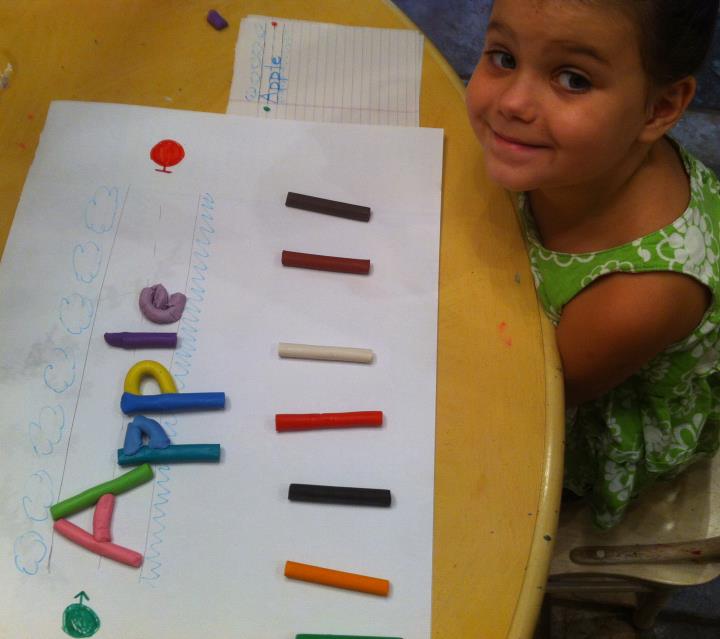
I can complain about all the extra work that comes with a new school year, or I can happily embrace a new beginning.
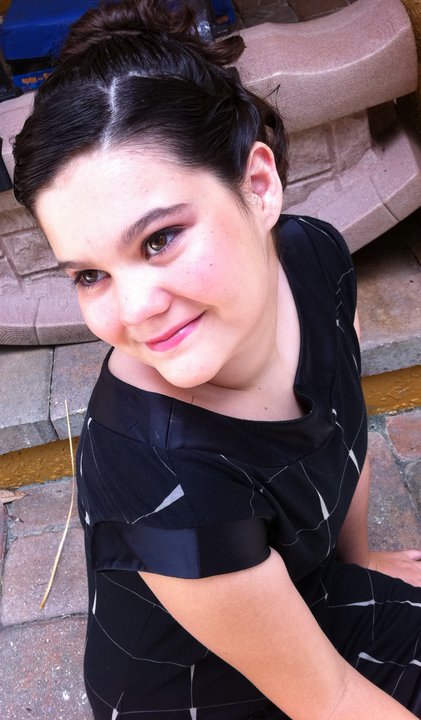
I can waste time longing for my youth, or I can gasp at the youthful beauty of my most precious gifts.
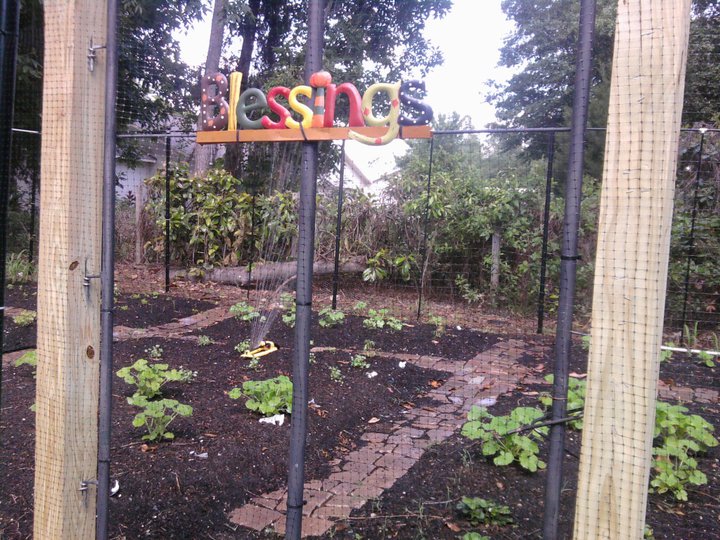
I can wish for riches, or I can revel in richness.

I can worry about the future, or I can trust Who holds the future.
Gratitude bestows reverence, allowing us to encounter everyday epiphanies, those transcendent moments of awe that change forever how we experience life and the world.
John Milton
 Award-winnning author, L.R.Knost, is the founder and director of the children's rights advocacy and family consulting group, Little Hearts/Gentle Parenting Resources, and Editor-in-Chief of Holistic Parenting Magazine. Books by L.R.Knost include Whispers Through Time: Communication Through the Ages and Stages of Childhood ; Two Thousand Kisses a Day: Gentle Parenting Through the Ages and Stages ; The Gentle Parent: Positive, Practical, Effective Discipline ; and Jesus, the Gentle Parent: Gentle Christian Parenting the first four books in the Little Hearts Handbook gentle parenting series, and children’s picture books Petey’s Listening Ears and the soon-to-be-released Grumpykins series.
Award-winnning author, L.R.Knost, is the founder and director of the children's rights advocacy and family consulting group, Little Hearts/Gentle Parenting Resources, and Editor-in-Chief of Holistic Parenting Magazine. Books by L.R.Knost include Whispers Through Time: Communication Through the Ages and Stages of Childhood ; Two Thousand Kisses a Day: Gentle Parenting Through the Ages and Stages ; The Gentle Parent: Positive, Practical, Effective Discipline ; and Jesus, the Gentle Parent: Gentle Christian Parenting the first four books in the Little Hearts Handbook gentle parenting series, and children’s picture books Petey’s Listening Ears and the soon-to-be-released Grumpykins series.
A September to Remember: Too Beautiful for Earth~Heaven’s Newest Angel Baby
As I wrap up ~A September to Remember~ with such a grateful heart to all my friends who shared their ‘vintage treasures’ with me, I’ve chosen a final few posts to share as a lead in to October’s Pregnancy and Infant Loss Awareness Month. Here is a touching post from Theresa at NurturingtheNaturalMama. Be aware that loss is discussed. Be blessed, mamas.
The Doctor said I had been “struck by lightening twice”- I have now conceived twice while on the pill. And I get it, with so many women who struggle with infertility out there, how is it that someone like me conceives TWICE on the pill? I have no idea. First time I can chalk it up to perhaps imperfect compliance, this time- I have no explanation. Nonetheless, it happened.
So just as anyone who thought they were being “safe” that finds out they’re pregnant would do, I freaked. I had a complete and utter panic attack. I have a nine month old, I’m still on medication for PPD (the label for which says it can cause birth defects), I’ve been taking the pill, and drinking alcohol! EEK! So I go to the Doctor, who draws some blood… assures me I’m probably early enough where it won’t matter… and talks me down of my stress-cliff. I go home more self assured and semi- ready to try and explain this to my husband.
Needless to say, by the next day the thoughts have sunk in and we’re ready to dig in our heels and make our growing family fit into our tiny apartment, and even spent well into the night before chatting about names and the other idle chit chat that goes along with the beginning stages of pregnancy.
That’s when we got the call.
I would need my bloodwork rechecked the following day at my OBGYN’s office. When my OB called, the conversation started with “I am so sorry…”
What?! You’re sorry about what???….
My HCG levels had dropped, and I was told if I hadn’t already, I was having a miscarriage.
“This is not a viable pregnancy.” What does that even mean? Simple translation: Your baby is dead. Now I get it, to some this seems dramatic- especially for someone who was probably only 6- 8 weeks pregnant. But my baby’s heart was beating. My baby was alive, and is now dead.
The few family members we had told have attempted to console us with the ever popular “something just wasn’t right”, or “your body just wasn’t ready”, or “everything happens for a reason”- and while I can appreciate all of that, it still means my baby is gone. And what makes me feel the worst, is that s/he was so tiny at such an early gestation…. I get a lump in my throat even just THINKING about typing this… that s/he probably got…. gulp….. flushed down the toilet.
I, for all intents and purposes, could have flushed my baby down the toilet.
This devastates me most of all.
But the biggest lesson I have learned from all of this, is that miscarriage is such a silent and lonely struggle. You don’t tell anyone because you don’t want people to think you’re just seeking pity, but then everyone around you is going on with their daily lives, talking about the night out with friend A, or their trip to the bar with friend B, and you were just told your baby is dead. And no one ever knew your baby even existed.
How do you get support? Who do you talk to? You’re certainly not going to go around asking ‘hey, have you had a miscarriage? I just did and I’m not sure what to do next’.
I have at least found the following links which have either brought some peace/support to me, or I feel could help others:
My Forever Child: Memorial Jewelry
We Were Gonna Have a Baby, but we Had an Angel Instead
Bethany’s Baby from Bethany’s blog
And I have found much needed solace in my husband, and in our Church. And tonight, as I rocked my baby A to sleep, I held her a little tighter, kissed her forehead a bit longer, drew in a deeper breath of her warm baby smell, waited for her own breathing to even, and then laid her down and watched…. and then did what I haven’t done in … well, I think my whole life… I prayed. I prayed to whoever this God is, that my other babies stay safe. And that I wanted to thank Him SO much for the blessings I DO have in my life. My two existing, healthy, happy babies… my wonderful husband.. my beautiful step daughter… my family…. my friends…
and then I asked Him, pretty please, if He could just take tonight, to rock my baby to sleep…
Thanks for Theresa for sharing, and don’t forget to check out her site at NurturingtheNaturalMama!
 Award-winnning author, L.R.Knost, is the founder and director of the children's rights advocacy and family consulting group, Little Hearts/Gentle Parenting Resources, and Editor-in-Chief of Holistic Parenting Magazine. Books by L.R.Knost include Whispers Through Time: Communication Through the Ages and Stages of Childhood ; Two Thousand Kisses a Day: Gentle Parenting Through the Ages and Stages ; The Gentle Parent: Positive, Practical, Effective Discipline ; and Jesus, the Gentle Parent: Gentle Christian Parenting the first four books in the Little Hearts Handbook gentle parenting series, and children’s picture books Petey’s Listening Ears and the soon-to-be-released Grumpykins series.
Award-winnning author, L.R.Knost, is the founder and director of the children's rights advocacy and family consulting group, Little Hearts/Gentle Parenting Resources, and Editor-in-Chief of Holistic Parenting Magazine. Books by L.R.Knost include Whispers Through Time: Communication Through the Ages and Stages of Childhood ; Two Thousand Kisses a Day: Gentle Parenting Through the Ages and Stages ; The Gentle Parent: Positive, Practical, Effective Discipline ; and Jesus, the Gentle Parent: Gentle Christian Parenting the first four books in the Little Hearts Handbook gentle parenting series, and children’s picture books Petey’s Listening Ears and the soon-to-be-released Grumpykins series.
College for Struggling Learners
by Lee Binz
The HomeScholar
 Learning to Compensate
Learning to Compensate
Dealing with learning challenges is difficult, but in high school, it can become seriously concerning. You don’t have to be afraid! With the great student to teacher ratio of homeschooling, and the love for your child, you have what it takes!
Debbie was at her lowest point when she realized her 12 year old son, Dan, could not read or write in his Sunday school classes. She had to carefully shield him from the judgment of others. Her homeschool friends were very understanding, but she worked hard to keep him away from situations where he would have to read aloud. She was distraught. Again and again they changed curriculum, hoping each time that a new curriculum would change everything. It seemed like nothing would ever work. He struggled with learning all the way through high school. She never had him officially tested, because she didn’t want him to be labeled as an adult. Dan has achieved wonderful things since graduating homeschool!
When Dan turned 18, he started working at Starbucks. An excellent worker, he received nothing but positive feedback which motivated him to continue his education. He decided to attend college. He didn’t score well on the SAT, so they did not report his scores to colleges. He entered college “through the back door” his mother said, by attending community college first. His excellent work ethic and love of learning helped him thrive where others felt adrift. Dan transferred from community college to the university with a 3.89 grade point average. There were 300 applicants to the business school this year, and Dan was one of only 100 admitted. Debbie says “He finally realizes he can do it!”
 Debbie has some great advice for parents. Don’t push them before they are ready. She was glad she kept him home, so that he could avoid the negative feedback from a public school setting. She read aloud to Dan constantly – even his high school textbooks, when necessary. She used verbal assessments in all his classes, and didn’t introduce essay writing until much later.
Debbie has some great advice for parents. Don’t push them before they are ready. She was glad she kept him home, so that he could avoid the negative feedback from a public school setting. She read aloud to Dan constantly – even his high school textbooks, when necessary. She used verbal assessments in all his classes, and didn’t introduce essay writing until much later.
She recommends books by Dr. Raymond Moore, including Better Late Than Early: A New Approach to Your Child’s Education and Grace Llewellyn, The Teenage Liberation Handbook: How to Quit School and Get a Real Life and Education and Cynthia Tobias, The Way They Learn. She says, “You feel like you’re failing – like you didn’t do something right.” Don’t be deterred, though. It takes a lot of one-on-one time, but that’s the benefit of homeschooling. Read to them their textbooks, and the classics. Even in college they can be allowed help with reading.
 In her lowest moments, Debbie would remember her grandfather. He also could not read. His wife would read blueprints to him each night so he would be prepared for work the next day. Still, he grandfather was a successful businessman. He was able to compensate. Her son Dan is able to compensate now.
In her lowest moments, Debbie would remember her grandfather. He also could not read. His wife would read blueprints to him each night so he would be prepared for work the next day. Still, he grandfather was a successful businessman. He was able to compensate. Her son Dan is able to compensate now.
Her biggest surprise was realizing that Dan wanted a college degree. She had never thought he would go to college, and only vaguely considered a technical school. But when he worked at Starbucks, he identified his gift in business. So her additional advice is the same as mine. She says, “Even if you think they won’t go to college, they may – so always be prepared!”
Dan is so thankful he was homeschooled. He has said he would never put his own children in public school. He knows that if he had been in public school, he wouldn’t be where he is today. Nurturing is critical, and homeschooling can provide that best. Debbie says, “I remember the hopelessness. They CAN succeed and excel – just give them the tools.”
Learning to Teach
 JoAnn homeschooled her two daughters, feeling extremely unsure of her abilities – until her girls were officially diagnosed with learning disabilities. Once she had the diagnosis, she realized that homeschooling was the best option. She didn’t want her girls ostracized and placed in a “special” group that would have a negative effect on their socialization skills. Even her mother became increasingly supportive of homeschooling after the diagnosis was made.
JoAnn homeschooled her two daughters, feeling extremely unsure of her abilities – until her girls were officially diagnosed with learning disabilities. Once she had the diagnosis, she realized that homeschooling was the best option. She didn’t want her girls ostracized and placed in a “special” group that would have a negative effect on their socialization skills. Even her mother became increasingly supportive of homeschooling after the diagnosis was made.
Her two girls could not read until half-way through 5th grade. They struggled in reading, writing, and spelling. Joann took her children to The Slingerland Institute. She recommends two pamphlets that really helped her cope. One is Why Wait for a Criterion of Failure. The other is An Adaptation of the Orton-Gillingham Approach for Classroom Teaching of Reading, both by Beth Slingerland.
JoAnn’s advice is “Never despair! The timing of brain growth is on your CHILD’S timetable, not yours. Accept it, because you certainly can’t change it!” She wishes she would have dropped more academic subjects when they were in elementary school. Still, she is so glad she homeschooled. “Homeschooling is better for dyslexic kids for the positive encouragement and socialization.”
 She taught with multi-sensory input and multi-sensory output. In every subject she worked to provide lessons with audio, visual, AND tactile input. She would supplement courses with drama, hands on projects, and verbal assessments all the way through school. Her daughters were especially helped by the use of color. Her daughter still color codes her college lecture notes to improve her retention.
She taught with multi-sensory input and multi-sensory output. In every subject she worked to provide lessons with audio, visual, AND tactile input. She would supplement courses with drama, hands on projects, and verbal assessments all the way through school. Her daughters were especially helped by the use of color. Her daughter still color codes her college lecture notes to improve her retention.
JoAnn’s older daughter went directly into the University and majored in biology with a minor in chemistry. She has recently graduated with an advanced degree as a Veterinarian Technician. Her younger daughter also went directly into the University. She will graduate with a degree in interior design, and has already done some design work for Bill Gates as a college intern. Both girls were very successful in college.
Learning to Cope
Jill is hesitant about labeling her daughter in any way, but knew she faced some unique challenges even though she wasn’t formally diagnosed. Her daughter recently became a National Merit Scholarship Semi-Finalist. Here is what Jill says about her daughter’s struggles: “She worked hard and I’m very proud of her. She is the daughter that would fit into the statement ‘I could never homeschool my child because….’ She is very active, intense, dramatic and a joy to be around. I am convinced that if she were in the public school we would have been ‘encouraged’ to put her on medications (the standard line around here, when she is getting jumpy is to ‘run up to the mailbox and get the mail’ which is a mile round trip). She has forced me to think outside of the box and, well, it is an adventure I’m sorry to see come to a close.”
 Like the other mothers, Jill was able to find a way to harness strengths and weaknesses, and teach her child to compensate for difficulties. With a parent’s close attention, unique coping mechanisms can develop. A homeschooling parent can see small successes, and learn to shape and mold new ways of coping with each challenge.
Like the other mothers, Jill was able to find a way to harness strengths and weaknesses, and teach her child to compensate for difficulties. With a parent’s close attention, unique coping mechanisms can develop. A homeschooling parent can see small successes, and learn to shape and mold new ways of coping with each challenge.
Joelle is right in the thick of things, with her young child. I asked her for some advice for others, and she emphasizes that coping comes from faith. This is Joelle’s experienced advice.
“A learning ‘disability’ (a word I hesitate to use for anyone who doesn’t have a severe condition) isn’t something you can just make go away if you have a clinic and a handful of web links. A learning challenge is best addressed with being sensitive to learning style and interests, which, as you know, vary from child to child.
A learning challenge is also a mindset, a lifestyle, and sore knees from prayer. A learning challenge means you’ll come face to face with your pessimism and lack of faith through tears of mourning for the child you don’t have. But lest anyone abandon hope, a learning challenge also means seeing God answer those tears by turning them to tears of what is, hands down, absolutely the most incredible joy when you see the triumphs. You will see those victories sooner or later on Earth or in Heaven.
A learning challenge leads to personal growth in the siblings of the challenged child. A learning challenge is a worldview, a lens, a perspective. It’s the fierce mother-bear love you have when you whisper to your child, ‘Don’t listen to the naysayers. I love you no matter what, and I’m still your teacher.’ I can’t put this in a box. I can offer a short list, but there’s only one resource on here that I can guarantee hands down will help everyone. The rest can be labeled ‘of interest.’
1) The Bible. Children are people – in fact, they are the most human of people. There are lots of passages on how we are to deal with our fellow humans. This is the only resource on this list that I can guarantee *will* help.
2) Last Child in the Woods: Saving Our Children From Nature-Deficit Disorder by Richard Louv – read this concurrently with #3
3) Smart Moves: Why Learning Is Not All in Your Head by Carla Hannaford – which will probably lead to curiosity about #4
4) Brain Gym or similar therapies offered by #5 and #6
5) The National Association for Child Development ( )
6) The Developmental Movement Center, Seattle (206) 525-8038″
Learning to Grow
Jay Smith of Linfield College says this, “The advice that I’d give to your students, is to simply be proactive in their college search process. The students shouldn’t be afraid to ask colleges if they offer support for students with learning disabilities, and what that support entails. We have high expectations of our students, but we also understand that we all learn in different ways.”
 Some colleges have an extremely supportive environment for children with learning disabilities. Redeemer Pacific College is a small Catholic college in Langley, BC, affiliated with Canada’s premier Christian liberal arts university, Trinity Western University. Admissions Coordinator Jennifer Friesen says, “All RPC students are able to use the services for students with disabilities offered through TWU, including access to the Learning Resource Centre and starting off their university career at TWU’s Freshman Academy.” The Learning Resource Centre offers services such as note taking, accommodated examinations and providing material in alternate formats.
Some colleges have an extremely supportive environment for children with learning disabilities. Redeemer Pacific College is a small Catholic college in Langley, BC, affiliated with Canada’s premier Christian liberal arts university, Trinity Western University. Admissions Coordinator Jennifer Friesen says, “All RPC students are able to use the services for students with disabilities offered through TWU, including access to the Learning Resource Centre and starting off their university career at TWU’s Freshman Academy.” The Learning Resource Centre offers services such as note taking, accommodated examinations and providing material in alternate formats.
Freshman Academy is a program for students who have not met the requirements for admission into university due to a low grade point average or missing academic courses. Friesen says, “Freshman Academy allows students to go through their classes in a small cohort with the support of their professors, a faculty Learning Coach, and their classmates. Once students have completed Freshman Academy they are able to directly enter their second year of university at Redeemer Pacific and Trinity Western.”
When I go to college fairs, I notice how many colleges truly specialize in students with learning struggles. They WANT your students, and they are ready, willing, and able to teach them.
Learning to Succeed
 You can request accommodation for the SAT and ACT if necessary, which does require a doctor’s diagnosis. If you don’t want accommodation for the college admission tests, a diagnosis may not be necessary. You may feel comfortable with your homeschooling methods, and don’t need additional help or direction. Perhaps a specialist will not impact what you’re doing, and a diagnosis may not change anything or be worth your while. On the other hand, if you are completely baffled about how to teach your student in a way that makes sense, and the input of a specialist will help you and change what you are doing, then evaluation may be useful.
You can request accommodation for the SAT and ACT if necessary, which does require a doctor’s diagnosis. If you don’t want accommodation for the college admission tests, a diagnosis may not be necessary. You may feel comfortable with your homeschooling methods, and don’t need additional help or direction. Perhaps a specialist will not impact what you’re doing, and a diagnosis may not change anything or be worth your while. On the other hand, if you are completely baffled about how to teach your student in a way that makes sense, and the input of a specialist will help you and change what you are doing, then evaluation may be useful.
If you think a diagnosis will help YOU, then I think it will help your child. In that situation, testing would be worthwhile, even if it’s inconvenient. If testing will not help you, then it may not be necessary.
Keep in mind your long-terms goals. You want your child to grow up and have their own home. You want them to succeed and thrive in anything they choose. There are colleges that specialize in learning disabilities. There IS a great college out there for him, and they will understand and accept any learning issues without hesitation. Search and you will find just the right college.
Lee Binz, The HomeScholar, specializes in helping parents homeschool high school. Get Lee’s 5-part mini-course, “The 5 Biggest Mistakes Parents Make Homeschooling High School.” You can find her at http://www.TheHomeScholar.com. Sign up for our newsletter, The HomeScholar Record: http://www.thehomescholar.com/homeschool-newsletter.php
 Award-winnning author, L.R.Knost, is the founder and director of the children's rights advocacy and family consulting group, Little Hearts/Gentle Parenting Resources, and Editor-in-Chief of Holistic Parenting Magazine. Books by L.R.Knost include Whispers Through Time: Communication Through the Ages and Stages of Childhood ; Two Thousand Kisses a Day: Gentle Parenting Through the Ages and Stages ; The Gentle Parent: Positive, Practical, Effective Discipline ; and Jesus, the Gentle Parent: Gentle Christian Parenting the first four books in the Little Hearts Handbook gentle parenting series, and children’s picture books Petey’s Listening Ears and the soon-to-be-released Grumpykins series.
Award-winnning author, L.R.Knost, is the founder and director of the children's rights advocacy and family consulting group, Little Hearts/Gentle Parenting Resources, and Editor-in-Chief of Holistic Parenting Magazine. Books by L.R.Knost include Whispers Through Time: Communication Through the Ages and Stages of Childhood ; Two Thousand Kisses a Day: Gentle Parenting Through the Ages and Stages ; The Gentle Parent: Positive, Practical, Effective Discipline ; and Jesus, the Gentle Parent: Gentle Christian Parenting the first four books in the Little Hearts Handbook gentle parenting series, and children’s picture books Petey’s Listening Ears and the soon-to-be-released Grumpykins series.
A September to Remember~Journey to Grace-based Discipline
Up next in ~A September to Remember~ is The Peaceful Housewife with a ‘vintage post’ about modeling grace in our parenting. Lovely!
~~~To the Time Out Corner!~~~
 As I’ve blogged about previously, we are on a new journey into grace based discipline in our house. I am learning so much about Christ from my children and about parenting my children from Christ. I am seeking to model my parenting from how my heavenly Father parents me. He is, after all, the ultimate parental figure.
As I’ve blogged about previously, we are on a new journey into grace based discipline in our house. I am learning so much about Christ from my children and about parenting my children from Christ. I am seeking to model my parenting from how my heavenly Father parents me. He is, after all, the ultimate parental figure.
In grace based parenting, your connection with your child is foremost. As a result of that connection and the relationship you build with your child, true loving obedience is born. This seemed strange to me at first, as one of the suggestions you often see is time-in’s, or loving your child during the undesirable behavior rather than sending them away to sit by themselves as punishment for their behavior. Sending them to time out can send the message that you will not love them or be connected to them if their behavior doesn’t please you.
In reflecting on this, I wonder if that’s part of why so many people are codependent. I also think that’s part of why I struggle with understanding how Christ can love me with my character defects. The manner in which I discipline, or disciple, my children teaches them about Christ and His love. I have a very sobering responsibility to ensure that I model Christ’s actual love and correction rather than a skewed version that is overly heavy on punishment or on grace.
So I asked myself how Christ corrects me when I am sinful. He convicts me and speaks to me gently but firmly, and then He waits for me to ask for forgiveness and make amends. He never breaks His fellowship with me or throws a tantrum. He doesn’t lash out at me in anger. He always has the end result in mind – when I am made perfect and whole in Him when my life here is done. He doesn’t demand that I apologize when I don’t yet fully understand why what I’ve done is wrong or try to make me feel guilt and shame in order to force me to behave. The connection is first. The relationship. I am not capable of being fully and constantly sinless for Christ. Praise God, my relationship with Christ isn’t dependent on my actions or character. He loves me and disciples me even when my character defects are rearing their ugly little heads. He is constantly reaching out to me, drawing near to me, guiding me, filling me with His Holy Spirit.
So how does this translate to my parenting? I need to be constantly drawing close to my children, guiding them, filling them with wisdom and grace. I need to remember that my relationship with my children is foremost and should not suffer because of their character defects. I need to disciple my children gently but firmly and help them to understand Godly character and the fruits of the Spirit. I don’t need to demand superficial apologies that aren’t sincere or try to control my children’s’ behaviors by making them feel guilt and shame. I need to ask the Holy Spirit to convict my children and be there to help them understand that conviction. I need not behave in anger and I must keep the end result in mind – I have been entrusted with the very important job of helping to raise up a servant of Christ.
to my children, guiding them, filling them with wisdom and grace. I need to remember that my relationship with my children is foremost and should not suffer because of their character defects. I need to disciple my children gently but firmly and help them to understand Godly character and the fruits of the Spirit. I don’t need to demand superficial apologies that aren’t sincere or try to control my children’s’ behaviors by making them feel guilt and shame. I need to ask the Holy Spirit to convict my children and be there to help them understand that conviction. I need not behave in anger and I must keep the end result in mind – I have been entrusted with the very important job of helping to raise up a servant of Christ.
I am constantly reminded of this in the 12-steps of Celebrate Recovery. In step 12, having had a spiritual experience as a result of these steps, we try to carry this message to others and to practice these principles in all our affairs. The verse that goes with this step is Galatians 6:1, “Brothers, if someone is caught in a sin, you who are spiritual should restore him gently, but watch yourself, or you also may be tempted.” My children are children of God. They are my brother and sister in Christ. If they are caught in a sin, I need to restore them gently, using caution to ensure that I am not sinning against God by abusing the responsibility that He has entrusted me. It is a sobering responsibility. One day, I will be called to account for how I raised my children. Will I have neglected that responsibility by being overly permissive and not enforcing boundaries? Will I have abused that responsibility by attempting to control and change my children into what I believe that they should be? Or will I have done the best that I could with Christ’s help to model the love of Christ and give them a healthy understanding of God’s love, grace and conviction?

 Award-winnning author, L.R.Knost, is the founder and director of the children's rights advocacy and family consulting group, Little Hearts/Gentle Parenting Resources, and Editor-in-Chief of Holistic Parenting Magazine. Books by L.R.Knost include Whispers Through Time: Communication Through the Ages and Stages of Childhood ; Two Thousand Kisses a Day: Gentle Parenting Through the Ages and Stages ; The Gentle Parent: Positive, Practical, Effective Discipline ; and Jesus, the Gentle Parent: Gentle Christian Parenting the first four books in the Little Hearts Handbook gentle parenting series, and children’s picture books Petey’s Listening Ears and the soon-to-be-released Grumpykins series.
Award-winnning author, L.R.Knost, is the founder and director of the children's rights advocacy and family consulting group, Little Hearts/Gentle Parenting Resources, and Editor-in-Chief of Holistic Parenting Magazine. Books by L.R.Knost include Whispers Through Time: Communication Through the Ages and Stages of Childhood ; Two Thousand Kisses a Day: Gentle Parenting Through the Ages and Stages ; The Gentle Parent: Positive, Practical, Effective Discipline ; and Jesus, the Gentle Parent: Gentle Christian Parenting the first four books in the Little Hearts Handbook gentle parenting series, and children’s picture books Petey’s Listening Ears and the soon-to-be-released Grumpykins series.
A September to Remember: Embracing Respect
Today’s though-provoking ‘vintage post’ is from Jessica Bowman, author of
To read more awesome insights from Jessica, you can find her over at Bohemian Bowmans!
~Embracing Respect~
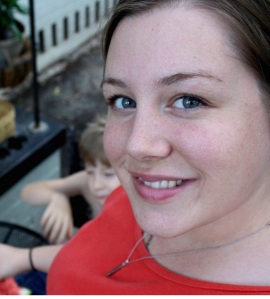 Well, the New Year is around the corner, in case you weren’t aware. And now that the Christmas sugar buzz is wearing off, I suppose most people, like me, are starting to reflect on 2010 and peer curiously towards 2011.
Well, the New Year is around the corner, in case you weren’t aware. And now that the Christmas sugar buzz is wearing off, I suppose most people, like me, are starting to reflect on 2010 and peer curiously towards 2011.
There are some a lot of circumstances in our life that I have no control over. This post is about the other things.
The things I can do.
First of all, I’m not a resolution making person.
I never make New Year’s resolutions. I think the “success” rate of them is abysmal, and I don’t want to be disappointed in myself later for not meeting some silly and entirely too specific goal. Instead, I just enter every new year with the obvious plans of growing wiser that year, becoming a better parent, wife, friend, and follower of Jesus.
However.
This year, I can feel myself funneling my regeneratory New Years powers in a certain direction.
No, it’s not a weight goal. Though it probably should be.
I’m not wanting to climb a mountain.
Or learn to make jewelry.
Or visit Disneyworld.
It’s a Family Mission Statement whittled down to one. single. word.
Respect.
I’ve been thinking a lot about respect the last couple of months. In regards to parenting. In regards to learning.
I began to learn about respect in marriage a few years ago when I read a book about it. I had never thought very much about respect before then. I had never realized the importance of it. The magnitude of it.
But, for some reason, though that book did shift my respect paradigm in relation to my husband, it didn’t leave that little box that I put it in. It never occurred to me that the concept could spill over into seemingly unrelated areas of life, like education.
But in the last quarter of 2010 I began to think a lot more deeply about education. About learning. About parenting.
And the theme I kept coming back to is Respect.
I’ve realized anew this year, that in practice, I don’t respect my children very much. I hold my authority over their head and play my “because I said so” card too often.
I often times feel like I am living out Colossians 3:21.
“Parents, don’t come down too hard on your children or you’ll crush their spirits.”
I’ve been crushing the spirits of my children.
With my impatience. With my harshness. With my disrespect.
So with tears and the simple, unrefined prayer of “help” repeated untold times as I lay in bed at night, I began to grasp a hold of the practice of respect in our day to day.
I’ve increasingly stopped talking to them as if they are children, but instead as if they are grown ups. Or, more accurately, as if they are people.
As if they are people created by God with talents and purpose that I have no right to squash with my annoyance.
So much of what children do that exasperate us are not “sins” at all. They are just people with very little experience at life who need to be led by example.
Our example.
Examples in authority are powerful.
It is ever so hard to step outside of the parenting you were parented with.
Or the marital skills that were modeled for you.
And it is ever so illogical to think that if we are harsh and impatient with our children, they will learn to be respectful and loving of their siblings and friends and future families.
So, I’ve been learning to respect my children. To treat them as people. To listen. To explain things they don’t know yet, as if they were another grown up, instead of as if they are inconveniences and ever disdainful children.
And, lo and behold, the more I’ve treated them with respect, the more they have respected me. And each other.
The more patient I’ve been with them, the more patience they’ve shown each other. The calmer I’ve been with them, the calmer they’ve been with each other. The more attention I’ve shown them, the more attention they’ve shown each other.
I realize this isn’t a complicated concept. And is the second greatest commandment at it’s base.
Treat other people the way you want to be treated.
But sometimes that can feel truly hard to practice and own.
So, that is my purposeful word for my family this year.
And it is already changing us.
Don’t forget to check Jessica out over at Bohemian Bowmans, and take a look at her ebook!
 Award-winnning author, L.R.Knost, is the founder and director of the children's rights advocacy and family consulting group, Little Hearts/Gentle Parenting Resources, and Editor-in-Chief of Holistic Parenting Magazine. Books by L.R.Knost include Whispers Through Time: Communication Through the Ages and Stages of Childhood ; Two Thousand Kisses a Day: Gentle Parenting Through the Ages and Stages ; The Gentle Parent: Positive, Practical, Effective Discipline ; and Jesus, the Gentle Parent: Gentle Christian Parenting the first four books in the Little Hearts Handbook gentle parenting series, and children’s picture books Petey’s Listening Ears and the soon-to-be-released Grumpykins series.
Award-winnning author, L.R.Knost, is the founder and director of the children's rights advocacy and family consulting group, Little Hearts/Gentle Parenting Resources, and Editor-in-Chief of Holistic Parenting Magazine. Books by L.R.Knost include Whispers Through Time: Communication Through the Ages and Stages of Childhood ; Two Thousand Kisses a Day: Gentle Parenting Through the Ages and Stages ; The Gentle Parent: Positive, Practical, Effective Discipline ; and Jesus, the Gentle Parent: Gentle Christian Parenting the first four books in the Little Hearts Handbook gentle parenting series, and children’s picture books Petey’s Listening Ears and the soon-to-be-released Grumpykins series.
Meanderings by Rosemary Jones
 I wish there was someplace less than 30 miles away that could make me a good macchiato. But nooooo. Seattle is the only home of decent coffee. Not li’l ole Everett. I wish baristas wouldn’t ask “Like, a caramel macchiato?” when you order your drink.
I wish there was someplace less than 30 miles away that could make me a good macchiato. But nooooo. Seattle is the only home of decent coffee. Not li’l ole Everett. I wish baristas wouldn’t ask “Like, a caramel macchiato?” when you order your drink.
I wish we could live in Seattle. The pawnshops, the boarded up pay-by-the-hour motels, the dirt of our surroundings wears on me at times. But then I see the dirt of Seattle, and know that there are hurting people and disease of the soul and ugliness everywhere and that the only utopia will be after this life. And then I come home and see the beauty of our culturally diverse neighborhood; projects yes, but a dozen countries represented, children tearing about in the nearby parks hollering at each other in a dozen different languages, and I know our multi-cultural-ministry hearts are planted here for a reason.
I wish Jesus were here in the flesh so I could ask Him a whole load of questions.
I wish my little section of heaven would include my CuteBoy best friend ever, a truly free spirit, texture and color and beauty yet unseen, somehow the perfect blend of a rich, heterogeneous urban dwelling with galleries and street musicians and food hawkers on one half and the other half an endless ocean, the waves crashing, the salty seaweed scent soothing, and the ability to switch between the sounds of the urban and the sounds of the sea at my will. I would wish for the assignment of food, food, food, glorious food. Heavenly food, access to anything and everything, each era, each region, each culture on earth and in heaven represented on my menu; no burnt fingertips, no pots boiled over, no underdone bites. I’d serve a dozen courses to Esther and Vashti and Hagar and Jael and every other fierce woman in Biblical history. I’d serve them to my dear Ruthie, my Ugandan sister I wish to see this side of heaven. I’d serve them to my grandmother and my sister… the older sister I was supposed to have, who was taken to heaven too soon, I’d serve them to my babies I never got to hold. And of course Jesus in the flesh so I can ask Him a whole load of questions. We would eat and drink and talk and never grow full or tired or bored or annoyed because someone said something stupid.
and everything, each era, each region, each culture on earth and in heaven represented on my menu; no burnt fingertips, no pots boiled over, no underdone bites. I’d serve a dozen courses to Esther and Vashti and Hagar and Jael and every other fierce woman in Biblical history. I’d serve them to my dear Ruthie, my Ugandan sister I wish to see this side of heaven. I’d serve them to my grandmother and my sister… the older sister I was supposed to have, who was taken to heaven too soon, I’d serve them to my babies I never got to hold. And of course Jesus in the flesh so I can ask Him a whole load of questions. We would eat and drink and talk and never grow full or tired or bored or annoyed because someone said something stupid.
But chances are, He’s laughing at my wishing imaginings of heaven ’cause His unknowable plans are a whole lot better. I wish I had a home big enough for all of these babies.
I wish for the day we take our family to that Great Horn, the source of the Nile, the land that holds the best food in the world to finally meet the rest of our babies I know God has for us.
I wish I saw children spoken to with the respect they deserve more often than I do.
I wish I knew how to say more than “Where’s the post office?” in Russian. That was an expensive class.
I wish Every Single Person would take the time to listen to this man’s story. Really Listen To It.
And while you’re at it, read this book too.
I used to wish for bigger breasts, critically eyeing my 12-year-old body, wishing for justthatmuchmore and now I wish for a flatter stomach, critically eyeing my 32-year-old momma body, wishing for justthatmuchless. Which my husband reminds me is absurd, it’s sexy because it’s an empty pocket where our daughter grew and how much more beautiful is that? I now wish my daughter will not be subjected to our culture’s obsession with physical perfection, and if necessary, has her own husband to remind her of her true beauty.
I wish I always knew what was going on in my BabyGirl’s head and how to translate her sweet babblings and raspberries into words I understand.
I wish I knew how to make a killer hollandaise sauce. And a sexy poached egg. And perfectly crisp hashbrowns. Then I would never have to go to another diner again.
I wish I could bottle the scent in the crook of my daughter’s neck. But it’s so much more than the scent… It’s the sensation of her hair grazing her earlobe and the tip of my nose, it’s her giggles when I kiss her, it’s the peace of breathing her in after she’s asleep. That’s what I wish I could bottle.
I wish Every Single Child was parented with intentionality, with grace, without violence, with the closest thing we can possibly achieve to the perfection of our Heavenly Father.
I wish every heart, including mine, would expand to defend and provide and rescue the orphan. That every heart would break for the things that break His.
Only I don’t have to wish. Because I serve a God who hears my prayers and does as He sees fit.
Which even though I don’t understand it, is usually better than my wishes anyway.
 Award-winnning author, L.R.Knost, is the founder and director of the children's rights advocacy and family consulting group, Little Hearts/Gentle Parenting Resources, and Editor-in-Chief of Holistic Parenting Magazine. Books by L.R.Knost include Whispers Through Time: Communication Through the Ages and Stages of Childhood ; Two Thousand Kisses a Day: Gentle Parenting Through the Ages and Stages ; The Gentle Parent: Positive, Practical, Effective Discipline ; and Jesus, the Gentle Parent: Gentle Christian Parenting the first four books in the Little Hearts Handbook gentle parenting series, and children’s picture books Petey’s Listening Ears and the soon-to-be-released Grumpykins series.
Award-winnning author, L.R.Knost, is the founder and director of the children's rights advocacy and family consulting group, Little Hearts/Gentle Parenting Resources, and Editor-in-Chief of Holistic Parenting Magazine. Books by L.R.Knost include Whispers Through Time: Communication Through the Ages and Stages of Childhood ; Two Thousand Kisses a Day: Gentle Parenting Through the Ages and Stages ; The Gentle Parent: Positive, Practical, Effective Discipline ; and Jesus, the Gentle Parent: Gentle Christian Parenting the first four books in the Little Hearts Handbook gentle parenting series, and children’s picture books Petey’s Listening Ears and the soon-to-be-released Grumpykins series.

 When a little person feels frustrated, overwhelmed, or just plain old out-of-sorts (read: tantrum time!) it’s tempting for parents to focus on correction rather than connection. But when children are intensely stressed, the prefrontal cortex of the brain (which in early childhood is an under-developed, mushy ‘ball of playdoh’ waiting to be formed) is flooded with cortisol, aka the ‘stress hormone.’ The result is what is known as the fight-freeze-or-flight syndrome in which higher brain functions (learning, reason, self-control) are markedly hampered and lower brain functions (instinct, physical reactions) take over. This is an in-built survival mechanism that gradually comes under conscious control through years of growth in a safe and supportive environment.
When a little person feels frustrated, overwhelmed, or just plain old out-of-sorts (read: tantrum time!) it’s tempting for parents to focus on correction rather than connection. But when children are intensely stressed, the prefrontal cortex of the brain (which in early childhood is an under-developed, mushy ‘ball of playdoh’ waiting to be formed) is flooded with cortisol, aka the ‘stress hormone.’ The result is what is known as the fight-freeze-or-flight syndrome in which higher brain functions (learning, reason, self-control) are markedly hampered and lower brain functions (instinct, physical reactions) take over. This is an in-built survival mechanism that gradually comes under conscious control through years of growth in a safe and supportive environment.




 Set aside a small corner of the family room so they can still be close to you and let them help decorate it and choose a favorite blanket, some comfy pillows, and a few special books and stuffed friends to keep there.
Set aside a small corner of the family room so they can still be close to you and let them help decorate it and choose a favorite blanket, some comfy pillows, and a few special books and stuffed friends to keep there. 



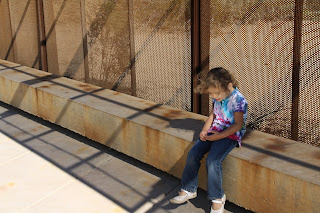
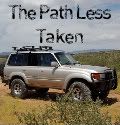


 This has been such a full year for our family. I find myself wondering often, though, about my little boy. At two and a half, what will he remember of this year? Anything?
This has been such a full year for our family. I find myself wondering often, though, about my little boy. At two and a half, what will he remember of this year? Anything? Cynthia is the mother of two little boys, an inquisitive preschooler and an energetic toddler. She blogs at
Cynthia is the mother of two little boys, an inquisitive preschooler and an energetic toddler. She blogs at 














